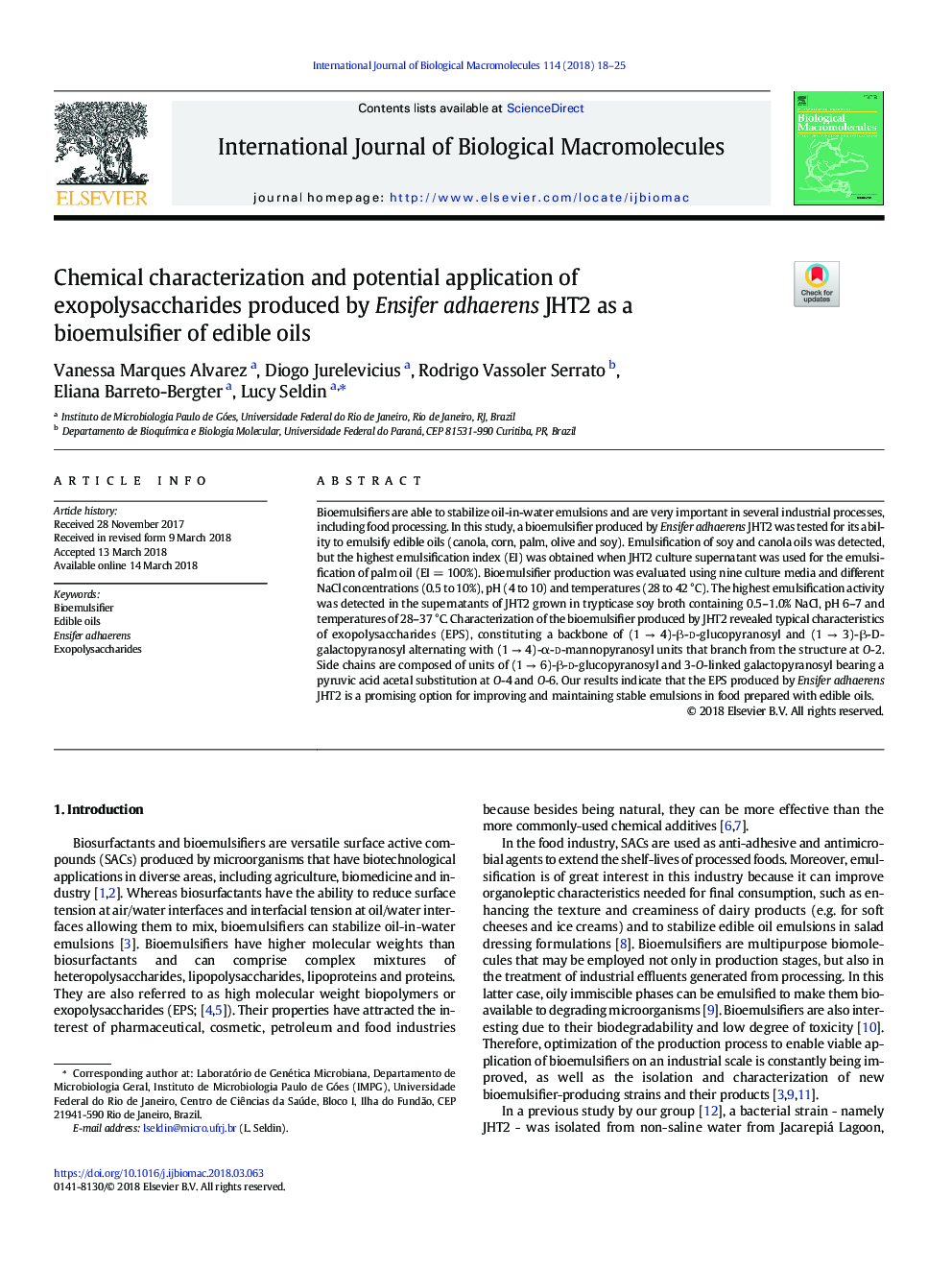| Article ID | Journal | Published Year | Pages | File Type |
|---|---|---|---|---|
| 8327129 | International Journal of Biological Macromolecules | 2018 | 8 Pages |
Abstract
Bioemulsifiers are able to stabilize oil-in-water emulsions and are very important in several industrial processes, including food processing. In this study, a bioemulsifier produced by Ensifer adhaerens JHT2 was tested for its ability to emulsify edible oils (canola, corn, palm, olive and soy). Emulsification of soy and canola oils was detected, but the highest emulsification index (EI) was obtained when JHT2 culture supernatant was used for the emulsification of palm oil (EI = 100%). Bioemulsifier production was evaluated using nine culture media and different NaCl concentrations (0.5 to 10%), pH (4 to 10) and temperatures (28 to 42 °C). The highest emulsification activity was detected in the supernatants of JHT2 grown in trypticase soy broth containing 0.5-1.0% NaCl, pH 6-7 and temperatures of 28-37 °C. Characterization of the bioemulsifier produced by JHT2 revealed typical characteristics of exopolysaccharides (EPS), constituting a backbone of (1 â 4)-β-d-glucopyranosyl and (1 â 3)-β-D-galactopyranosyl alternating with (1 â 4)-α-d-mannopyranosyl units that branch from the structure at O-2. Side chains are composed of units of (1 â 6)-β-d-glucopyranosyl and 3-O-linked galactopyranosyl bearing a pyruvic acid acetal substitution at O-4 and O-6. Our results indicate that the EPS produced by Ensifer adhaerens JHT2 is a promising option for improving and maintaining stable emulsions in food prepared with edible oils.
Related Topics
Life Sciences
Biochemistry, Genetics and Molecular Biology
Biochemistry
Authors
Vanessa Marques Alvarez, Diogo Jurelevicius, Rodrigo Vassoler Serrato, Eliana Barreto-Bergter, Lucy Seldin,
